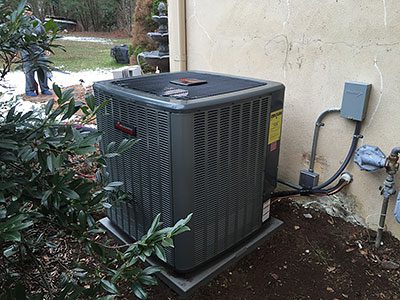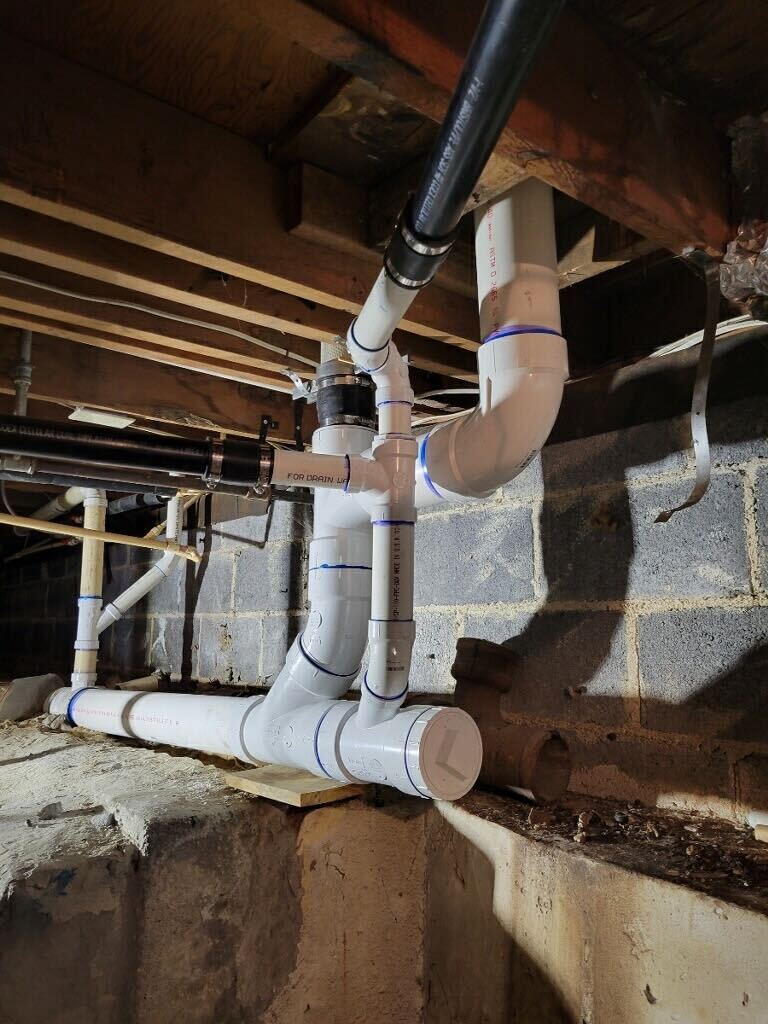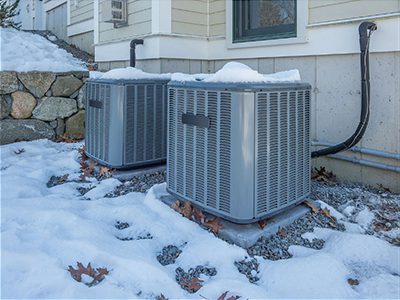How to Improve Air Conditioning Efficiency


Your home’s cooling system will also perform efficiently if it is properly maintained. Air conditioning repairs and maintenance must be performed on a regular basis and handled by professional HVAC service providers. Proper maintenance will help prevent frequent A/C breakdowns and costly repairs since potential problems are identified before they become worst. However, there are certain maintenance tasks that can be done in DIY way. Some of these tasks do not require technical expertise or special tools, so DIY homeowners like you can easily complete the job like professionals. You can also learn various ways on how to improve air conditioning efficiency from HVAC experts like us at Prof Gatsby. Improving Air Conditioning Efficiency like a Pro An air conditioner that runs smoothly and efficiently does not only provide optimum comfort but also peace of mind for the property owner. You can also have a highly-efficient cooling system by following a well-thought-out maintenance program. It must include regular check-up of vital A/C components and accessories, which typically require cleaning, tune-up, and part replacement. These tasks are best performed by certified technicians since they are well-trained in this job. To get a reliable service, look for a local service provider with extensive experience in HVAC installation and maintenance. A licensed technician or company uses proven troubleshooting techniques, modern tools and equipment, and other methods to improve the efficiency of your air conditioning unit. Don’t worry if you are on a tight budget since you can also perform some of the abovementioned tasks without professional help. Improving your A/C’s efficiency like a pro is not impossible. In fact, you can enjoy a 100 percent functioning A/C by just following our recommended tips on how to improve air conditioning efficiency like a pro. Our recommendations are summarized below. Most of these tips are low-cost, easy to follow, and proven effective. Please read carefully to understand each process and the specific steps that you should follow. Proper implementation is the key to achieving a highly energy-efficient cooling system in your home or business establishment. Sealing ductwork leaks. The ductwork is one of the key areas that should be inspected when doing maintenance works. Did you know that a properly functioning ductwork still loses up to 5% energy? How about a leaking ductwork? Expect up to 50 energy loss if there are leaks in your A/C’s ductwork system. A thorough inspection will help you find leaks and identify sections that require immediate repair. Once identified, repair or replace the damaged components using only industry-recommended replacement materials and methods. For large homes with complex ductwork, you may need the help of a professional contractor. Install smart thermostat. It is time to replace your manual thermostat with modern and more efficient air conditioning controls. A programmable thermostat will improve your A/C’s efficiency up to 15%. Newer versions promise higher efficiency rating since they have features that allow users to operate the cooling system via a remote control or the internet. Please take note that some top-of-the-line thermostats in the market today cost more than $250. You can easily recoup this cost because of the monthly savings you’ll get from your utility bills. Moreover, you have full control of your A/C’s operation because of your thermostat’s advanced monitoring and control functions. You can set the temperature of the A/C unit at certain times of the day or let it automatically adjust the setting based on your cooling needs. Clean filter regularly. The filter is one of the most important components of your A/C system. It must be cleaned regularly to ensure the efficient functioning of the A/C unit. A dirty filter blocks indoor airflow, contributes to dirt build-up on walls, ceiling, and cooling coils, and contaminates the ductwork. It can also trigger asthma attacks and other respiratory diseases. Replace your filter every 6 months or more often if you have pets in your home. Clean A/C drains. Water leaks from your air conditioning unit can be due to clogged drains. Inspect your A/C’s drain pipe for any blockage. Clean the drain with chlorine bleach and rinse it with 1 gallon of water. Keep vents and condensers unblocked. Maintaining the steady inflow of air is another simple way on how to improve air conditioning efficiency at no cost. You can do this by keeping the vents free from any blockage. Remove toys, blinds, curtains and furniture items that can block indoor airflow. Clean the area where the condenser unit is installed. Make sure that there is no vegetation or debris that blocks the fan grill. Do this task once a month particularly during summer. Protect the condenser unit. Adding a shade structure on your outdoor unit will also improve the efficiency of your air conditioning. The temperature around the unit will be lowered up to 6 degrees compared to those that do not have shades or protection. Make sure that the shades are used strategically to prevent airflow restriction. Bushes, plants and other barriers should be installed at least 24 inches away from the unit. Enjoy Comfortable Indoors with Highly-efficient Air Conditioning Systems You’ll surely have a worry-free summer by just following our tips on how to improve air conditioning efficiency like a pro. Enjoy a comfortable indoors, pay lower energy bills, and avoid frequent breakdowns with these simple but effective ways on improving your A/C’s efficiency. If you don’t have the time to perform these tasks, call a trusted local service provider like us at Professor Gatsby’s Heating and Cooling. We are one of the few HVAC companies in New Jersey with extensive experience in air conditioning installation and maintenance. At Professor Gatsby’s, clients are always guaranteed of highly-efficient air conditioning systems.
Top Plumbing Challenges in South Jersey Homes: A Comprehensive Guide


Top Plumbing Challenges in South Jersey Homes: A Comprehensive Guide Living in the charming neighborhoods of South Jersey brings its own set of perks, but homeowners must also be vigilant about plumbing challenges unique to the region. From weather-related issues to water quality concerns, understanding these challenges is crucial for maintaining a well-functioning plumbing system. In this comprehensive guide, we’ll delve into the common plumbing issues faced by South Jersey residents, discuss their causes, and provide practical tips for prevention. Weather-Related Challenges: South Jersey experiences a range of weather conditions throughout the year, from humid summers to cold winters. These extremes can take a toll on plumbing systems. Frozen Pipes: During the winter months, freezing temperatures can lead to the expansion and contraction of water in pipes, resulting in frozen pipes. This can cause pipes to burst and lead to water damage. Sump Pump Issues: Heavy rains common in South Jersey can put a strain on sump pumps. Malfunctioning or overwhelmed sump pumps may lead to basement flooding. Preventive Tips: Ensure proper insulation for exposed pipes, especially in attics and basements. Schedule regular maintenance for your sump pump, especially before the rainy season. Water Quality Concerns: The water quality in South Jersey can vary, with factors such as mineral content and sediment affecting plumbing systems. Hard Water Buildup: The region’s water may contain high mineral levels, leading to limescale buildup in pipes and appliances. This can reduce water flow and the efficiency of water heaters. Corrosion: Depending on the local water source, corrosion can be an issue. Corroded pipes may result in leaks and water quality problems. Preventive Tips: Consider installing water softeners to reduce mineral content. Regularly check for signs of corrosion and address issues promptly. Common Construction Practices: Understanding the construction practices in South Jersey is essential for tackling plumbing challenges arising from the region’s unique building characteristics. Older Infrastructure: In some areas, older homes may have outdated plumbing systems that are more prone to issues. Sewer Line Problems: Common construction practices might result in tree root intrusion into sewer lines, leading to blockages and backups. Preventive Tips: Conduct regular inspections, especially in older homes. Consider preventive measures like sewer line cleaning to avoid tree root intrusion. Conclusion By being aware of the specific plumbing challenges in South Jersey homes, homeowners can take proactive steps to prevent issues and ensure the longevity of their plumbing systems. Regular maintenance, awareness of local conditions, and prompt attention to emerging problems are key to a hassle-free plumbing experience in this beautiful region. Remember, a little prevention goes a long way in keeping your South Jersey home’s plumbing in top-notch condition.
Optimize Your HVAC System for Winter With These Reliable Tips


It is crucial to ensure that your HVAC systems can handle the task before the weather turns chilly and you begin using your heaters in the coming winter. Already? Yes, early this fall is the ideal time to maintain your furnace. Your winter comfort depends on your HVAC system. Here are five helpful tips for preparing your HVAC system for the approaching winter. Get Your Unit Warmed Up Regular use improves the efficiency of your home comfort system. However, it also causes system losses because it keeps the motor hot. It may take some time for your HVAC to function correctly after it has been left inactive for several months. That is why you need to start using your heating system soon to prepare it for the fall and winter. Check Your Air Filter For optimal airflow and efficient functioning, a clean air filter is necessary. If you have pets or live somewhere with a lot of pollen and dust in the air, you may need to change your filter more regularly than the typical three-month interval. In addition to decreasing the efficiency of your furnace, keep in mind that a dirty filter might cause respiratory problems in people with allergies or asthma. Keep Your Vents Clean Another way to maintain proper airflow in your home is to clean the vents. This winter, take a moment to ensure that nothing is blocking all of the vents in your home. Remove any obstacles, such as furniture or rugs, then vacuum them to get rid of any collected dust or filth. It will guarantee proper airflow and support the prevention of any future issues. Keep An Eye on Your Thermostat You can save up to 10% on your heating costs by lowering your thermostat by ten to fifteen degrees for eight hours daily. Keep things cozy but not too much during the day when people are active; at night or when nobody is home, lower the thermostat to save energy without sacrificing comfort. To prevent having to make manual adjustments daily, think about purchasing a programmable thermostat. Choose a device with built-in WiFi so you can use it while you’re away from home. Schedule A Tune-Up One of the best ways to guarantee that your HVAC system is efficiently operating is to have it routinely serviced by qualified HVAC contractors NJ. Most professionals advise arranging a tune-up at least once a year. And the fall is the ideal season to accomplish it before the weather becomes too chilly. A trained HVAC services expert will clean our system, evaluate all its components, and make any required repairs or upgrades. It will save you trouble (and money) in the long run. Beware Of When To Seek Help From A Professional HVAC Contractors NJ Things can still go wrong even if you follow all the instructions for preparing your HVAC system for winter. That is why it’s crucial to understand when to seek expert help. Some signs that you need the help of professional HVAC contractors NJ are when your HVAC system is making weird noises. Or when you experience a sudden spike in your electricity bills. When it comes to your home’s comfort, it’s always best to avoid on the side of caution. You rely on your thermostat to keep your house warm and your family happy during the winter. Regular tune-ups are necessary for it to operate as it should. Your HVAC system benefits from routine maintenance, which helps to avoid unexpected, inconvenient breakdowns. Count on Professor Gatsby Heating and Cooling to provide the best and most affordable HVAC system repair and upkeep when you schedule HVAC service. To enjoy a hassle-free and comfortable winter, schedule your heating tune-up today.











